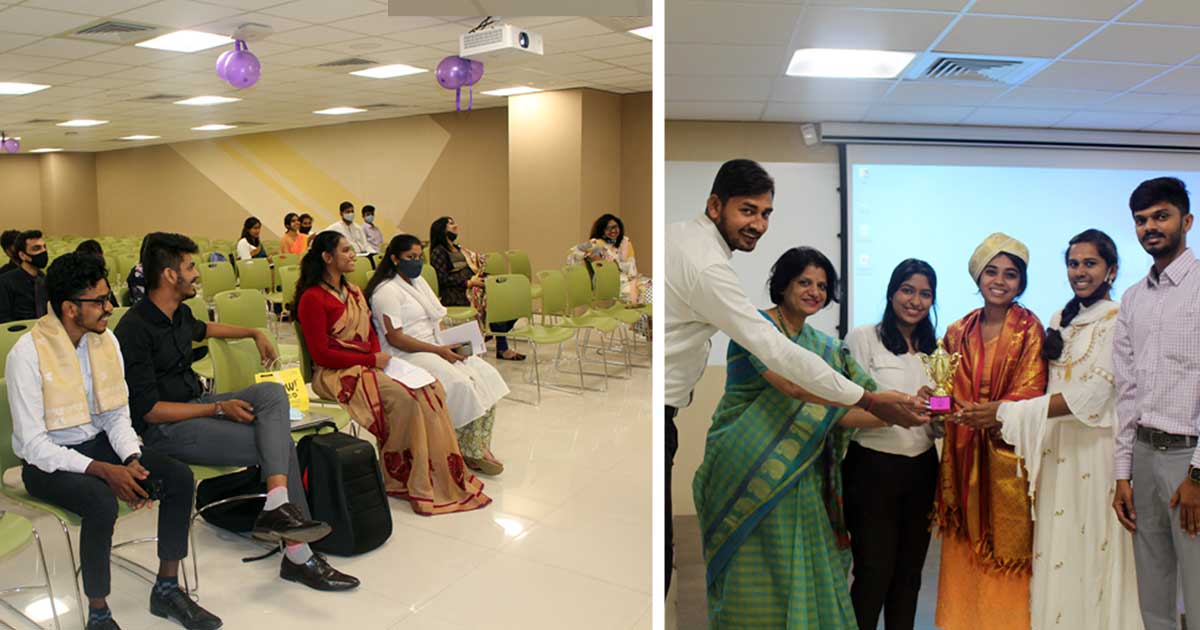Business Analytics Batch Model of United Nations (BAMUN)
01 Jan 1970

General Management Area of CMS Business School, JAIN (Deemed-to-be University) conducted an activity-based learning session, titled “BAMUNs (Business Analytics Batch Model of United Nation Conference)” as part of the Indian Economy and Policy course curriculum for the students of Business Analytics on March 23, 2021. The coordinator for the session was Ms. Sakshi Chhabra, Adjunct Faculty - CMS Business School The panel of judges included Dr. Uma MH, Associate Professor - CMS Business School, Dr. Ajay Massand, Assistant Professor & Area Chair, General Management - CMS Business School, and Ms. Uma Srinivasan, Visiting Faculty - CMS Business School.
Dr. Uma MH has around 20 years of teaching experience in reputed educational institutions in Hyderabad, Belagavi, and Bengaluru. Dr. Uma has worked in the capacity of a principal of a degree college, academic dean of a business school, and professor and chairperson - Examinations at Alliance University, Bengaluru. Dr. Ajay Massand has over 10 years of experience in teaching, corporate training, research, and industry exposure. Dr. Massand has published many research articles and letters in the Scopus and WOS Journals such as IIM Kozhikode Society and Management Review, Finance India, and Economic and Political Weekly. His research area is focused on international finance, monetary policy, and econometrics. Ms. Uma Srinivasan has been in the teaching profession for the last 13 years. Having been a banker and a consultant, she has industry knowledge of 12 years.
BAMUN was conducted on similar lines as MUN. Model of United Nations (MUN) is a debate event conducted by the UN to discuss the economic issues of various countries around the globe. It was a similar event for business analytic sessions for IEP class, where students were divided into four teams to represent four different states and discuss the economic issues of these states. The session provided an insight into the Indian economy. There was an extensive discussion on the socio-economic conditions of various states and measures these states should adopt to contribute to the growth of the economy. Furthermore, the history of Bihar, Gujrat, Karnataka, Punjab, Assam, Sikkim, and Andhra Pradesh also formed the crucial part of the session.